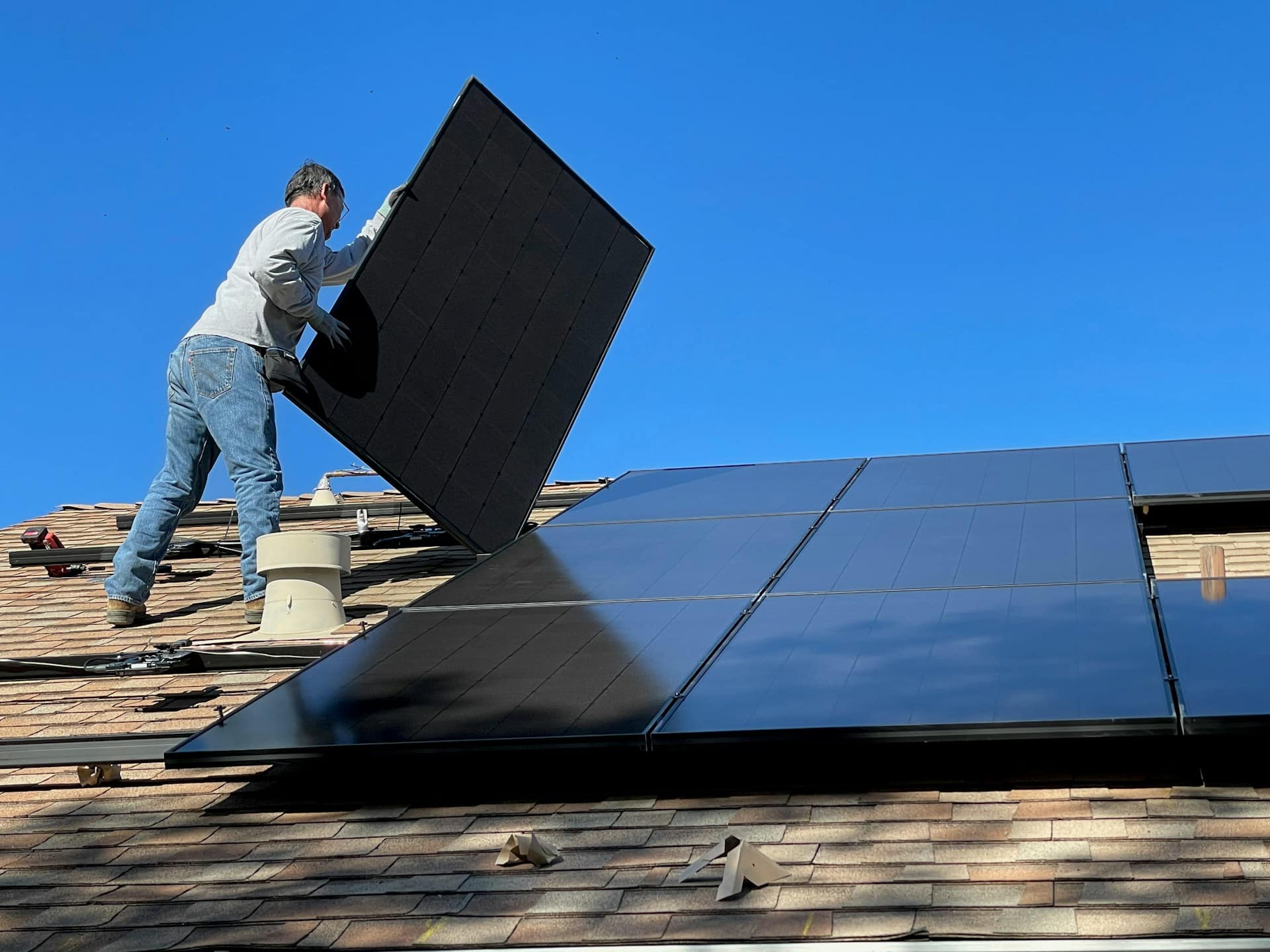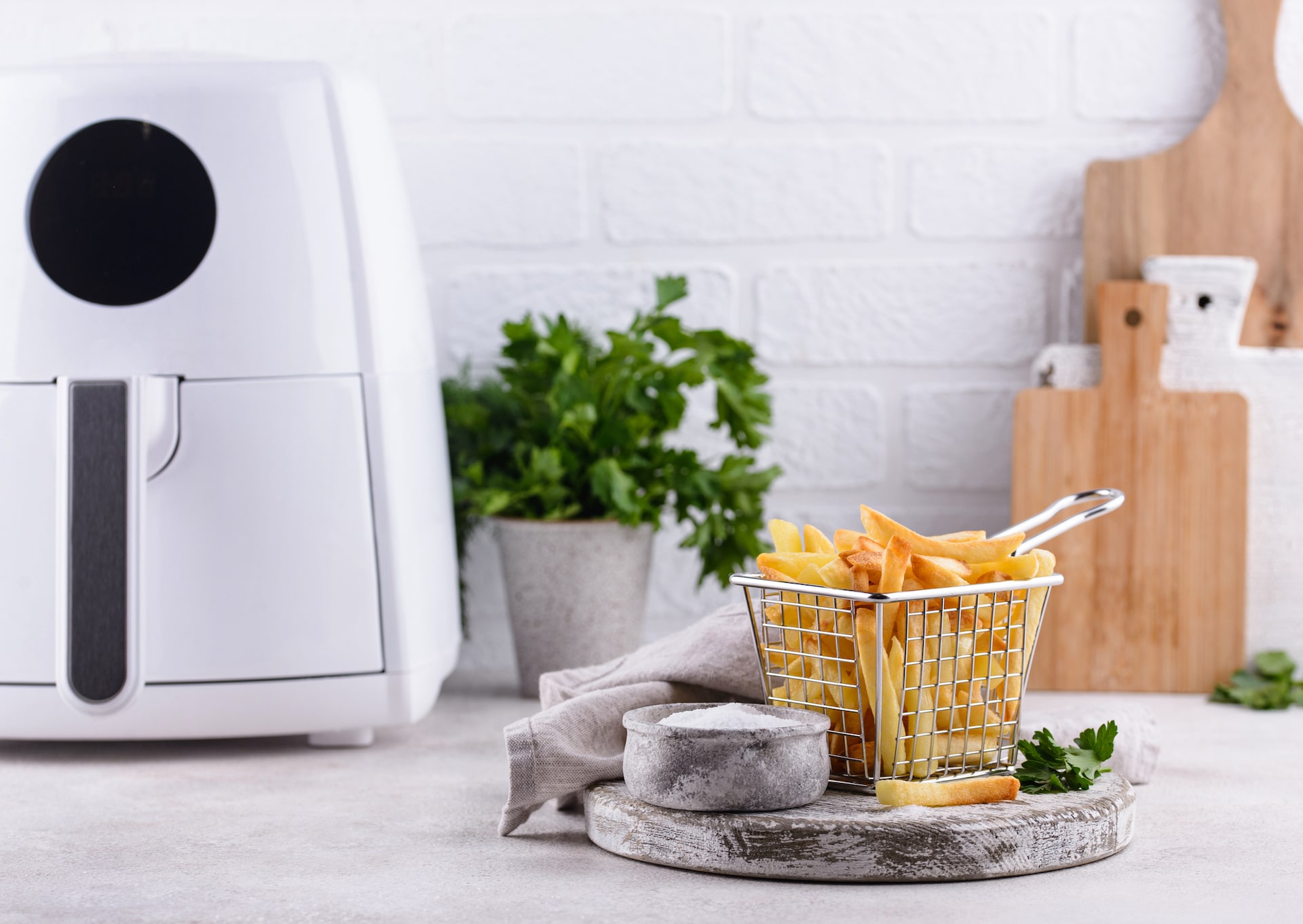This article may contain affiliate links. We may receive a commission for purchases made through these links. Privacy Policy.
In the past decade, the price of installing solar panels in residential homes has dropped by about 70%. Now more than ever, solar energy is becoming a viable option for more and more people.
If you’re looking to take advantage of the cost benefits and want to be a better friend to the environment, here are a few things to consider before investing in this increasingly popular home upgrade.
Here is our ultimate guide for installing solar panels on your home.
Is Your Roof Suitable for Solar Panels?
This is the very first thing you have to consider before installing solar panels. The amount of sun your roof receives, the angle, and obstructions like chimneys and skylights will all impact the viability of your system.
Additionally, in some communities, homeowners’ covenants restrict the use of panels for aesthetic reasons.
You’ll want to have your home evaluated by a professional before you invest.
If your roof isn’t suitable, don’t give up hope! Ground-mounted panels are another way to leverage solar power.
One significant advantage is they can be positioned at an angle to optimize the power of the sun best. Maintenance is also more straightforward with ground panels as there’s no need to access the roof.
Another option for renters or for people without a suitable roof is investing in a community solar garden. In recent years, utility companies and other new energy companies are offering this option.
The basic idea is that you buy a subscription to a “solar farm” and receive credits on your energy bill for the power produced.
Before you invest in any form of solar power, first consider the suitability of your roof and property and decide what’s best for you.

Is Your Roof Structurally Sound?
In addition to accessing how much sun your roof receives, you’ll also want to consider what condition it’s in.
Most solar power systems come with a 20 to 25-year warranty.
So if your roof is going to need an overhaul a few years down the road, it’s best to do any repairs before installing your panels. That way you’ll save yourself the cost of having to dismantle the system before you renovate.
Solar panels are also heavy. To assure that your roof can handle the added weight, it’s vital to have a professional evaluate your home before going forward with the installation.
Should You Lease or Buy?

If you do have a suitable roof, you’ll next want to do a cost analysis to see if it makes more sense to lease or buy your system.
When you purchase your own system, you pay more money upfront, but you reap bigger rewards over time.
With leasing, you pay little to no money down. The leasing company then charges you a certain fee for the electricity you use. But when your contract is up, they have the right to take your system away.
On the other hand, when you own the system, it will continue working long after you’ve paid it off. Times vary around the country, but on average most owners break even after about 8 years.
It’s important to a complete financial analysis that weighs the benefits and savings of both options. Also, keep in mind that while panels may last for decades, electrical parts like the power inverter do not. Be sure you’re thorough when you crunch the numbers.
James Brandon, from Hometown Roofing adds more insight into this process. Brandon says, “The best way to shop for solar panels is to search around your local area for an installer. The reason you want to choose a local solar provider is that they can qualify for a warranty that homeowners just wouldn’t be able to.”
“Plus with a local installer, you can do research on how long they’ve been in business, in case if your solar panels stop working, you can call them up for easy fixes or replacement. Be sure to check that your solar installer has a good reputation, been in business at least 5 years or more, and stands by their work in case of a roof or solar damage were to occur”, Brandon continues.
What About Tax Credits?
The biggest credit for solar panels comes from the federal government. The investment tax credit (ITC), also known as the solar tax credit, is about 26% of the overall cost of your system (as long as you purchase it).
States also offer tax credits for solar panels, but they vary widely around the country. Some states and cities also offer more complex rebate programs known as solar energy renewable certificates or SRECs.
Be sure to investigate all the options to best take advantage of the benefits that are offered.
Will Solar Panels Save you?
Solar energy is great from an environmental standpoint, but will it save you money? This depends on your electricity consumption and the number of solar panels you are looking to install.
Matt Daigle, CEO and Founder of Rise adds, “Your usage will dictate how many panels your
system will require to supply your energy needs. (Annual kWh Usage ÷ 365 days ÷ average sun hours per day) x (1 x efficiency factor) = Required DC Solar Array Size.”
Daigle continues, “It’s important to plan solar production based on the lowest-sun month of the year, which is in early winter. December 21 is the day of lowest sun in the northern hemisphere (winter solstice), or June 21 if you live in the southern hemisphere.”
For more information and detail PVWatts provides an in-depth calculator for your needs.
Did You Know There Are Two Types of Solar Technology?

There are two main forms of solar energy systems that you’ll want to consider before you make your investment.
Photovoltaic panels turn sunlight directly into electricity.
Thermal systems, on the other hand, use the sun to heat water and air for use inside of your home. This kind of system is beneficial if you use a lot of energy to heat your home. You may also want to consider if the cost of heating fuel is more expensive than electricity in your area.
Be sure to access your specific situation before deciding.
Related: Should You Rent Or Buy? [Things To Consider When Buying A Home]
Will You be On-Grid or Off-Grid?
Most residential homes with solar power are still connected to the grid, and grid-connected solar works by giving you credits on your electricity bill when your system produces more electricity than you use.
During the times when your system isn’t producing enough electricity, you will be powered by the grid. You can then use the energy credits you’ve accrued to cover the cost of the electricity you use from the utility company.
With off-grid solar, you won’t use any energy from utility companies. That means you’ll need a very large solar panel system, extensive storage capabilities and backup power for times when there’s not enough sun.
Should You Consider Solar If You Don’t Plan On Being in Your Home for the Next 20 Years?
Solar panel systems typically last for 20 to 25 years. So is it a good investment if you don’t plan on being in your home that long? In many cases, yes.
Brandon from Hometown Roofing shares, “solar panels are a long-term approach in saving you money and can take upwards to 10 years to see a return on your investment.”
A solar power system increases the value of your property and can also speed up the selling process as many people in the market for a house are excited by the prospect of lower energy bills.
Aaron Hardy, Editor of Axion Power, adds, “basically, you’ll need to calculate something called the LCOE or levelized cost of electricity to get an idea of what the average cost per kWh would
be over the lifetime of your system. Then you can compare that to the rate you’d likely pay to your utility.”
“The example we give of a $21,350 solar system covering roughly 10,836 kWh/year shows that it starts looking like a good investment after 20-30 years,” Hardy continues.
Hardy also adds, “the other thing to keep in mind, however, is that solar panels do typically add value to your home at a rate of about $4/watt of installed solar power. With a 5 kW system installed, that’s about $20,000 in increased home value, which makes it easier to justify spending the money upfront, realizing electricity savings, and then recouping much of your investment after you sell.”
Related: The Definitive Guide to Mortgage Refinancing

Insurance
Because solar panels are exposed to all kinds of weather, you’ll want to be sure your investment is covered. Things like lightning, hail and severe storms could damage your system. So do check your insurance options.
You’ll also want to have insurance that covers damages to you and your home during installation. In some states, this insurance is mandatory. Be sure to check with the proper authorities about regulations in your area.
Be Aware of Water Runoff
When you install solar panels, it can sometimes prevent water from flowing into the gutters and away from your home. This can lead to leaks that will eventually need to be prepared. To avoid any problems, be sure your contractor presents you with a plan on how your system will impact water runoff.
You could save yourself a lot of headaches!
Find a Trustworthy Contractor

Installing a solar power system is a huge investment. That’s why an experienced contractor with good references is vital.
When looking for a contractor, be sure they have accreditation from the North American Board of Certified Energy Practitioners (NANCEP). In addition, you’ll want to check reviews from individual customers.
It’s a little harder to predict, but also try to choose a contractor that you think will be around long term. You’ll want to make sure the company is still around in case anything stops working before your warranty is up.
And, of course, be sure to get multiple quotes before deciding. Steven Wood, owner of Swanky Den, an interior designer, home DIY expert and manager of a how-to website elaborates, “ I’d recommend a minimum of 3 but more can only help. This will let you get a feel for what the prices they charge are and you can notice any odd variations.”
Wood continues, “The pricing for solar panels are done by watt output and they vary by state. It can be anywhere from $2.76 per watt to $3.25 or 15,000 to 40,000 total cost per home.”
Again, this is a big investment!
Is Cheaper Better?
Although you will want to shop around to be sure you’re getting a fair price on your solar system, be careful of picking the cheapest option. If the price seems too good to be true in comparison with other quotes, it may not be the best choice.
You may pay less for low-end solar panels upfront, but they have hidden costs. Cheap solar panels are often less durable which negatively affects your investment and your future savings.
Low-quality solar panels can even be a safety hazard. Is it really worth it to risk a fire in your home to save a little money upfront? Definitely not!
The big question is, will solar panels save you money? And James Brandon, from Hometown Roofing, adds insight here about savings.
Brandon says, “It depends because if your electricity bill isn’t expensive, let’s say $40-$70 per month, you shouldn’t bother much with solar. Now if you were spending hundreds on your electricity every month, we would suggest looking into solar panels.”
Again, do shop around. But be sure you also invest the time and money to ensure your installing quality panels on your house. That way you’re sure to get a return on this important investment.
Warranties
Another way to protect your investment is to investigate the warranties that come with your system. They cover things like improper installation, defective parts, roof penetrations and many other things.
When choosing a contractor, be sure to ask about what kind of warranties they provide. Here are a few to be aware of:
Solar Panel Warranty
The industry standard for solar panels is a warranty of 20 to 25 years. If you’re offered less, you may want to continue shopping around.
This type of warranty also guarantees a minimum power output during the warranty period. Again, look to the industry standard here. Most warranties of this type should ensure a minimum output of 80% during the time your panels are covered.
Installation Warranty
This type of warranty protects you if your solar panels and related equipment have been improperly installed or the parts are defective. Most range somewhere from 2 to 10 years.
These warranties cover things such as labor and parts for elements that need to be replaced in your system, roof penetrations and shipping costs for defective parts that need to be reinstalled.
Inverter Warranty
An inverter converts photovoltaic energy from your panel into alternating current that you use for your appliances and lights.
Warranties of this type will depend on what kind of inverter you have.
String inverters handle power from a string of solar panels and generally have a period of between 5 and 10 years.
Microinverters, on the other hand, attach to individual panels and usually have a warranty of 20 to 25 years. Normally they cover things like manufacturing defects and flaws.
Things that this type of warranty does NOT usually cover are normal wear and tear, improper installation, improper maintenance and damage due to extreme conditions.
Be sure to investigate all the warranties that come with your system and compare them with industry standards.
Look Your Contract Over
Before signing any contract, it’s essential to review the details.
In this case, you’ll want to be sure your contract spells out the terms of financing, performance, warranties and ownership.
Also be aware that some systems include devices that collect data on your home energy production and usage. Be sure you check to see if this is a part of your system and who has access to the information.
When in doubt about any detail, seek legal advice before signing.
Are Solar Panels a DIY Project?

If you’re handy and think you can manage the installation of your solar panels on your own, you may want to think again. Unfortunately, there are a myriad of things that could go wrong if the project is not left in the right hands.
First of all, many warranties are invalid if your system is not installed by a licensed professional. That means that any damages that happen during installation or problems with faulty equipment will not be covered.
In addition, there is a lot of paperwork that has to be filed for building permits and other regulations. Something that can turn into a real headache and stall your project if it isn’t done correctly.
But beyond paperwork and warranties, there are many technical things that have the potential to go wrong. Faulty wiring could lead to fires or personal injury. Not to mention the potential damage to your roof if your panels are improperly installed.
To sum it up, it’s best to leave the installation of your solar panels to a licensed professional. That way you’ll be covered on rainy days as well as sunny ones.
Look at The Sunny Side
Obviously, installing solar panels in your house is a major undertaking. Although installation prices have dropped, it’s still a big investment with a lot of details to consider.
But if you do your homework beforehand, the long term benefits for you and the environment are well worth it. Here’s to making our planet a greener and more beautiful place for everyone!
You might also be interested in: What Is A Home Warranty? [And Other FAQs – Answered!]
Sherry De Alba
view postSherry De Alba
Sherry is a freelance writer who worked as an actor before transitioning to an award-winner career in advertising. During a vacation to Mexico, she fell in love and never left. Sherry (aka Cherita) now spends her time bouncing between the US and Mexico writing, running, cooking, meditating and exploring lots of cool stuff on the other side of the wall.
view post





